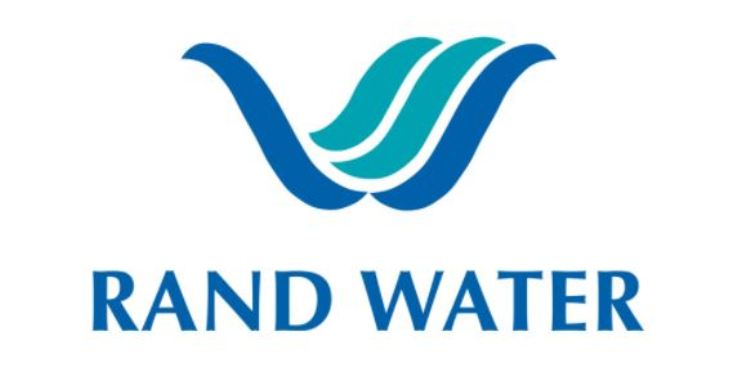Water Committee Chair Urges Transparency, Maintenance Ahead of Rand Water Shutdown
South Africa loses an estimated 41% of its treated water through leaks, theft, and unbilled usage—a figure that places the country among the highest in water loss globally.

- Country:
- South Africa
As Rand Water prepares for a scheduled maintenance operation on its bulk water supply system, Chairperson of the Portfolio Committee on Water and Sanitation, Mr. Leon Basson, has emphasized the critical importance of timely and transparent communication with affected communities. While welcoming the proactive maintenance approach by Rand Water, Mr. Basson stressed that communities must be adequately informed about disruptions, timelines, and intervention measures to mitigate the impact of water outages.
“While we support the proactive upkeep of critical water infrastructure, people must not be left in the dark,” said Mr. Basson. “Residents deserve clarity on how long they’ll be without water and what temporary measures will be in place to ensure continuity.”
The committee’s intervention comes as multiple municipalities across Gauteng and surrounding areas prepare for potential disruptions resulting from necessary work on the Rand Water bulk supply system, which provides drinking water to over 11 million people in South Africa’s economic heartland.
Rand Water Praised for Proactive Action, But Concerns Remain at Municipal Level
The Portfolio Committee on Water and Sanitation has long advocated for preventative maintenance of South Africa’s water infrastructure, which includes bulk water pipelines, reservoirs, treatment facilities, and municipal distribution networks. Mr. Basson commended Rand Water for its forward-looking approach to infrastructure preservation, noting that this kind of planned maintenance helps prevent catastrophic failures and reduces water losses.
However, the committee remains deeply concerned about the lack of initiative from municipalities, especially in regard to reticulation system maintenance—the network of pipes, pumps, and valves that delivers water from main reservoirs to individual homes and businesses.
“It is unacceptable that municipalities are failing to maintain their local distribution systems,” said Mr. Basson. “These gaps undermine the efforts by Rand Water and cause massive losses in the value chain through what is known as non-revenue water—water that is lost before it even reaches consumers.”
Non-Revenue Water: A National Threat to Water Security
South Africa loses an estimated 41% of its treated water through leaks, theft, and unbilled usage—a figure that places the country among the highest in water loss globally. The committee has consistently argued that unless municipalities address leaks, illegal connections, and outdated infrastructure, national water security will remain elusive.
“Rand Water’s infrastructure may be top-notch, but if the pipes leading into communities are leaking and neglected, the water still won’t reach where it’s needed,” Basson warned. He added that billions of rand are lost annually due to municipal inefficiencies, funds that could otherwise be reinvested in expanding access and improving service delivery.
A Call for Municipal Accountability and Investment
The committee has reiterated its call for greater accountability among local governments. Municipalities, according to Mr. Basson, must prioritize maintenance in their budgets, conduct asset condition assessments, and develop long-term infrastructure plans. He encouraged partnerships with both national government and the private sector to bolster technical capacity and funding for water infrastructure.
“The Department of Water and Sanitation can’t carry this burden alone,” said Mr. Basson. “We need a coordinated approach across all levels of government to safeguard the nation’s most precious resource.”
He further urged municipalities to adopt modern water management technologies, including smart metering, real-time leak detection systems, and GIS mapping, to better manage and monitor distribution networks.
Community Engagement a Priority Ahead of Disruptions
As the Rand Water maintenance gets underway, the committee is calling on municipal communications teams to begin immediate outreach in affected areas. Public notices, mobile updates, radio broadcasts, and local briefings should inform communities about:
-
Scheduled dates and times for water disruptions
-
Alternative supply measures, such as water tankers or temporary reservoirs
-
Tips on water conservation and storage during the maintenance period
-
Contact details for local water support teams
The committee has stressed that early and clear communication is essential not only to reduce panic and inconvenience but to build public trust in water management authorities.
Long-Term Vision: A National Water Infrastructure Upgrade
Looking forward, the committee supports a national strategy to overhaul aging infrastructure, particularly in urban centers facing rapid population growth and climate-related water scarcity. This includes integrating water resilience planning into urban development, climate adaptation strategies, and the National Water and Sanitation Master Plan.
Mr. Basson concluded by reiterating the committee’s commitment to working with all stakeholders to ensure sustainable, equitable, and reliable water delivery. “Water is life, and our infrastructure must reflect that truth from source to tap.”
ALSO READ
Building Bridges: Ion Exchange Forges Water Solution Partnerships Between India and South Africa
Kagiso Rabada: Spearheading South Africa's Historic WTC Victory
Yoga Unites: Celebrating the International Day of Yoga at South Africa's Heritage Sites
Uncapped Talent Joins Zimbabwe's Test Series Against South Africa
World Bank Boosts South Africa's Infrastructure with $1.5 Billion Loan










